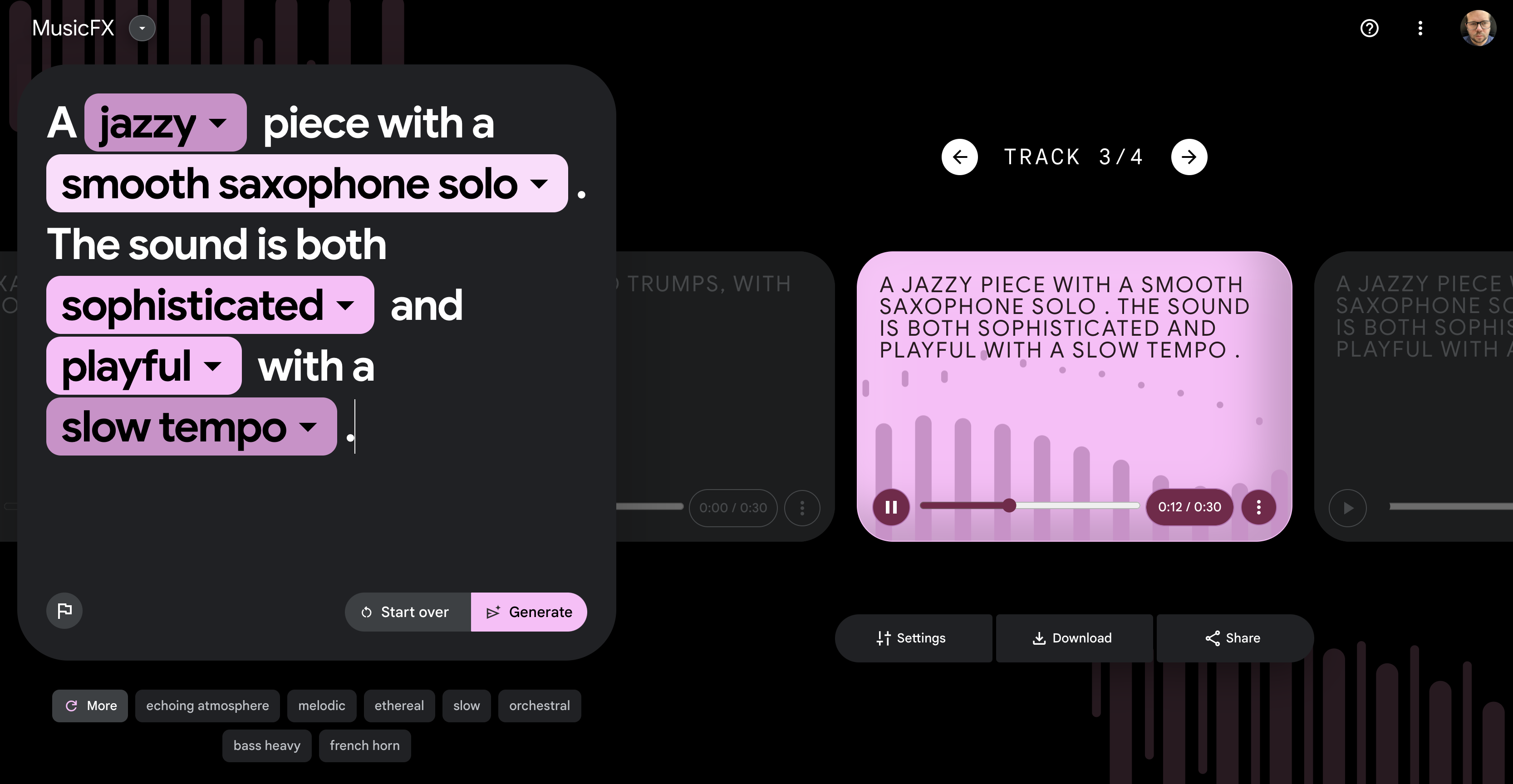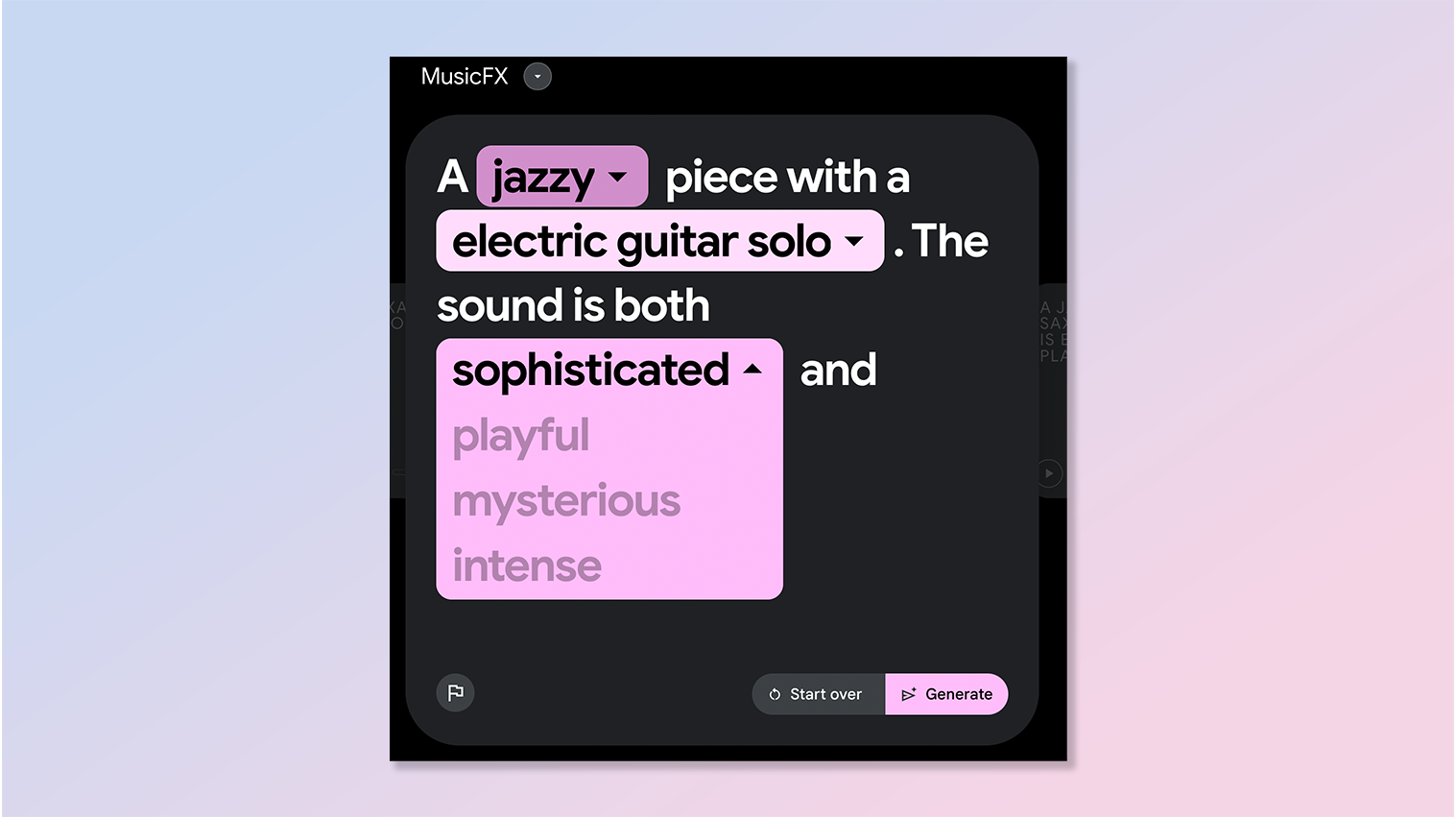I just tried Google’s new AI music generator MusicFX — and it’s the best one yet
A sound decision

This week Google unveiled MusicFX, its next-generation artificial intelligence music generator. The tool lets you create a sample instrumental track in seconds from just a few words of text.
MusicFX is part of the AI Test Kitchen and is the latest in a series of music-related AI experiments from the company. One of the most notable is Dream Track, a YouTube experiment that lets you clone the singing voices of famous artists like Sia and John Legend.
I’ve tried a couple of different AI music generators and this is the most natural sounding, producing a wide range of styles as well as longer and looping tracks.
It still isn’t a patch on the output an expert with a trained ear and actual musical abilities could produce with real instruments and a studio. However, like image and video AI generators, it is allowing everyone to express their creative side in new ways.
What can MusicFX do?

On the surface, the tool is incredibly simple. To the left of the screen, you have a text box, and to the right a list of tracks. You make a song by typing some words and clicking generate.
This is AI and nothing is as simple as the surface might seem. When you’ve entered your prompt, such as “a song to listen to while studying” and click Generate, MusicFX works out how best to optimize your words to get the most out of the system.
A few minutes later two tracks will appear on the right. Each is a slight variation on the prompt you and the AI worked up between you. I found this a little hit-and-miss, sometimes having to refine the prompt to get what I had in my head.
Get instant access to breaking news, the hottest reviews, great deals and helpful tips.
You can then change the duration of the clip in settings. Choices are 30, 50, or 70 seconds and you can set it to loop. This will ensure the start and end of the track match up.
What does Google's MusicFX sound like?
Much like making images with AI, what you get at the end is heavily influenced by what you type in as a text prompt but not necessarily guaranteed to be exactly what you asked for.
The more specific you are with MusicFX the closer you’ll get to the sound in your head. However, this also means that if you don’t have a sound in your head and just want something based on a rough theme it can also do that very well.
Trying out MusicFX
I asked MusicFX to create “a Christmas track the whole family can enjoy” and on the first attempt, I got something that sounded like a hoedown had burned down.
So I tried again, this time adding some more specifics such as ensuring it was contemporary pop, using guitar and bass. It was better but lost any sense of Christmas. It doesn’t always work out the way you hope.
Where MusicFX is good is in creating beats. You can give it pretty much any hip-hop or rap genre and it will produce a beat. You can refine it by adding specific instruments, even giving it a time signature and melody. It also did well with other genres like country and contemporary pop.
What are the limitations?
While Google has struck a deal with artists like Charlie Puth and John Legend to use their voice in DreamTrack on YouTube, that isn’t the case for MusicFX.
There is a block on generating any content that references an existing artist and anything produced uses the SynthID watermark that allows AI-generated content to be tracked.
The output can start to sound similar, even across different genres after a handful of generations. This is great if you want to produce an album or a consistent style, but not so great if you’re trying to do something different or unique with each new sound.
More from Tom's Guide
- 3 Microsoft PowerToys I install on every new PC—and you should too
- Microsoft is fixing one of the things I hate most about Windows 11
- These AI-generated YouTube tutorials are spreading dangerous malware

Ryan Morrison, a stalwart in the realm of tech journalism, possesses a sterling track record that spans over two decades, though he'd much rather let his insightful articles on AI and technology speak for him than engage in this self-aggrandising exercise. As the former AI Editor for Tom's Guide, Ryan wields his vast industry experience with a mix of scepticism and enthusiasm, unpacking the complexities of AI in a way that could almost make you forget about the impending robot takeover.
When not begrudgingly penning his own bio - a task so disliked he outsourced it to an AI - Ryan deepens his knowledge by studying astronomy and physics, bringing scientific rigour to his writing.
 Club Benefits
Club Benefits





